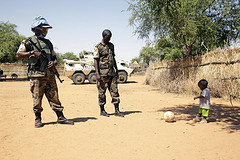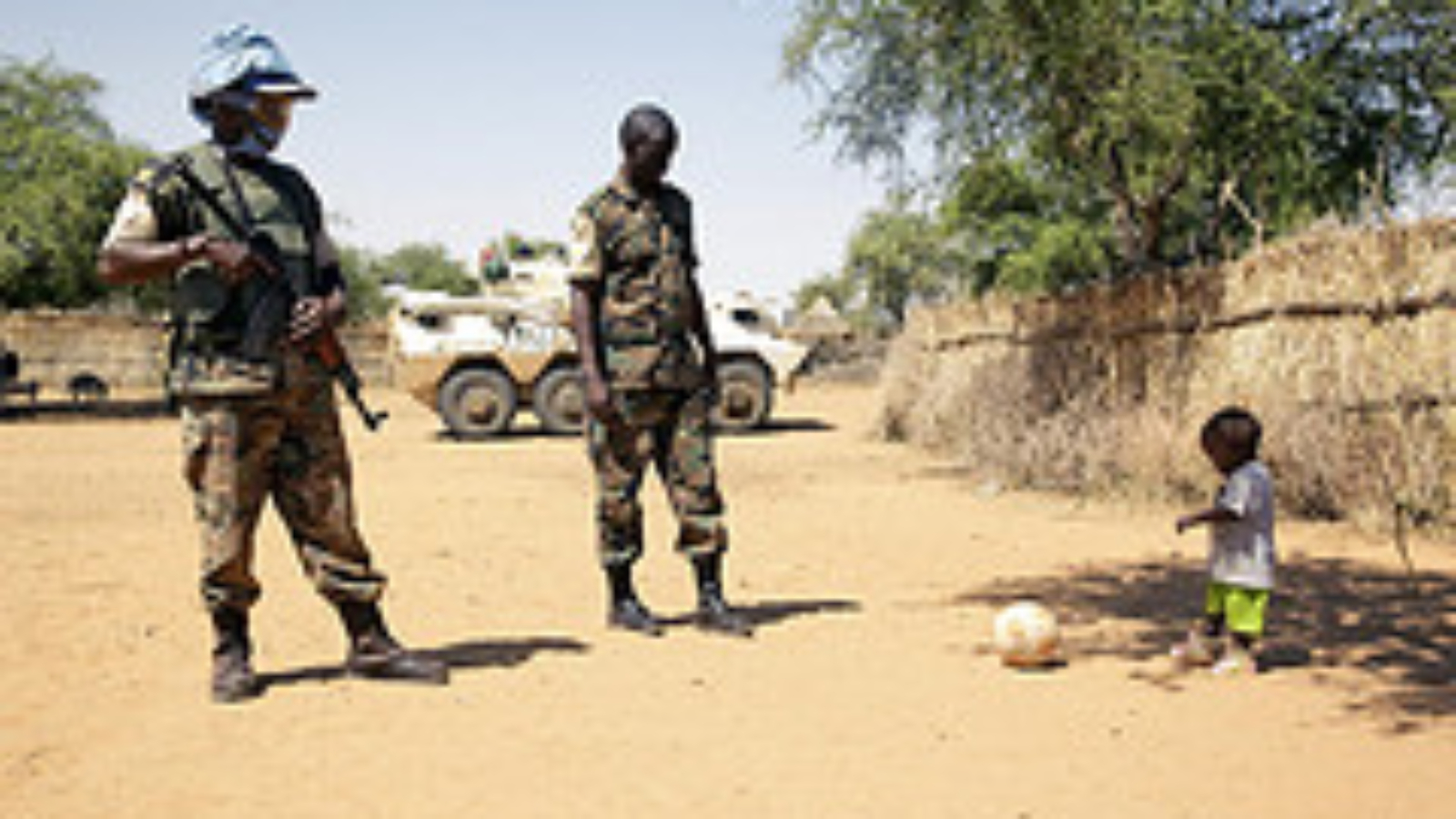 Two gunfights erupted near the Chad-Sudan border last Saturday, followed by another later this week between Chad's army and the rebel forces of the Popular Front for National Renaissance (FPRN). The battles mark the first break in cease-fire talks that were negotiated in February when both the governments of Chad and Sudan agreed to not support insurgents operating out of their respective countries in efforts to maintain peace and security. "Our security forces … completely control the entire zone," Chad's Information and Communications Minister Kedallah Younous Hamid announced on Thursday. Hamid claimed that over 100 rebel forces were killed and another 62 were captured during fighting. He added that only nine government soldiers were killed and 16 wounded, though FPRN leader Adoum Yacoub said many lives were taken by both sides. No independent report has been conducted to verify these numbers. Chadian insurgents have for years sought to overthrow the country's president, Idriss Deby, and though FPRN rebels operate out of Chad, other anti-Deby insurgent groups based in Sudan, like the Union of Forces for Democracy and Development (UFDD), have launched attacks on the government in the past. Sudan has previously accused Chad of backing rebels in Darfur, and in 2008, Chad accused the Sudanese of abetting a rebel group that almost reached the capitol of N'Djamena.The proxy-wars briefly stopped when relations warmed in February after the two warring countries created a joint force patrol to guard the border of Sudan's Darfur region, which is home to most of the rebel movements. For the time being, the cease-fire agreement appears to be holding, but neither country commented on what would happen should the skirmishes continue.
Two gunfights erupted near the Chad-Sudan border last Saturday, followed by another later this week between Chad's army and the rebel forces of the Popular Front for National Renaissance (FPRN). The battles mark the first break in cease-fire talks that were negotiated in February when both the governments of Chad and Sudan agreed to not support insurgents operating out of their respective countries in efforts to maintain peace and security. "Our security forces … completely control the entire zone," Chad's Information and Communications Minister Kedallah Younous Hamid announced on Thursday. Hamid claimed that over 100 rebel forces were killed and another 62 were captured during fighting. He added that only nine government soldiers were killed and 16 wounded, though FPRN leader Adoum Yacoub said many lives were taken by both sides. No independent report has been conducted to verify these numbers. Chadian insurgents have for years sought to overthrow the country's president, Idriss Deby, and though FPRN rebels operate out of Chad, other anti-Deby insurgent groups based in Sudan, like the Union of Forces for Democracy and Development (UFDD), have launched attacks on the government in the past. Sudan has previously accused Chad of backing rebels in Darfur, and in 2008, Chad accused the Sudanese of abetting a rebel group that almost reached the capitol of N'Djamena.The proxy-wars briefly stopped when relations warmed in February after the two warring countries created a joint force patrol to guard the border of Sudan's Darfur region, which is home to most of the rebel movements. For the time being, the cease-fire agreement appears to be holding, but neither country commented on what would happen should the skirmishes continue.
An Egyptian man, who was suspected of killing a Lebanese family, was stabbed to death then hanged on a butcher's hook by a wrathful mob in a village south of Beirut on Thursday. Lebanese officials quickly expressed outrage of the lynching, calling it "barbaric" and pledged on Friday to launch an investigation. "Whatever the feeling of the villagers, nothing can justify this type of reaction," Justice Minister Ibrahim Najjar said. Police officers were escorting 38 year-old Mohammed Msallem, a butcher in the southeastern mountain village of Ketermaya who was arrested Wednesday for suspicion of shooting an elderly couple and their two granddaughters, to the crime scene on Thursday to reenact the killings when the crowd overwhelmed the police officers and seized Msallem. According to security officials, local residents beat and stabbed him, then drove his naked body on the hood of a car towards the village square where they hung his corpse on an electricity pole with a butcher's hook. Lebanese officers arrived thirty minutes later to take the body away. "These are actions that the human conscience cannot accept," said Justice Minister Najjar. "We know the names of 10 people and the courts have to do their work." Lebanese President Michel Suleiman released a statement on Friday, expressing anxiety that this incident will tarnish Lebanon's image abroad. He has since authorized the appropriate authorities to enforce "severe punishments" on the villagers for taking justice into their own hands.
The body of a former Pakistani intelligence officer was discovered in the North Waziristan tribal region with fatal bullet wounds in his head and torso. A note was pinned to his body accusing him of being an American spy. Khalid Khwaja had served as a link between Pakistan's Inter-Services Intelligence agency and tribal militants and often boasted of his ties with Osama Bin Laden during the 1980s. He retired from the service to promote jihadist causes, then later directed the NGO Defence of Human Rights as a champion for Islamic suspects who had been illegally taken, detained and tortured by Pakistani intelligence. He was kidnapped last month, along with a Pakistani-English journalist and another former ISI officer, by a previously unheard of militant group called the Asian Tigers. The new Islamist militant faction made two videotapes delineating their demands: the release of three top Afghan Taliban commanders and other militants held prisoner in Afghanistan in exchange for the three hostages. Khwaja was killed when the ISI didn't respond to the threats, and the fate of the other two hostages is unknown. The note on Khwaja's body warned: "Khalid Khwaja is no more … We have given the deadline in order to approve our demands. The ISI and government didn't take it serious. This is the last warning to set your minds. What would be the next?" Officials in Islamabad estimate that over 30 militant splinter groups operate out of the rural tribal belt on the Pakistan-Afghanistan border, where Khwaja's body was found. The Wall Street Journal speculates that Khwaja, who allegedly was in Pakistan to film a documentary, was targeted as a symbol of the military intelligence establishment which has a powerful influence over Pakistan government policy.
